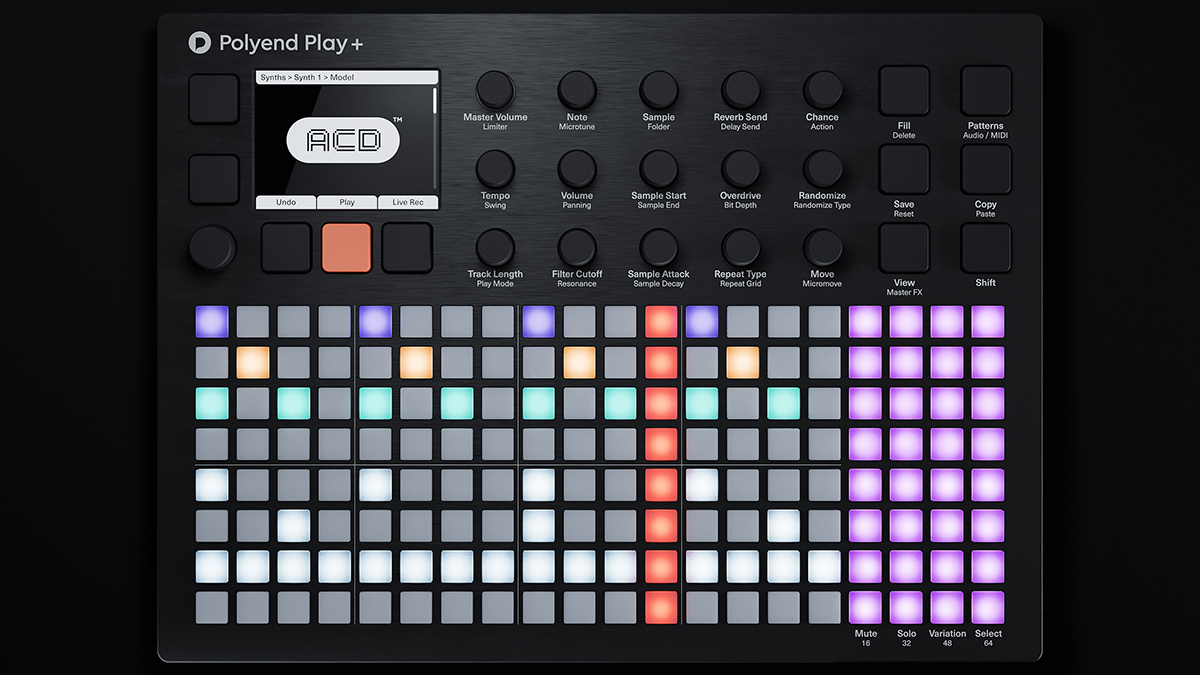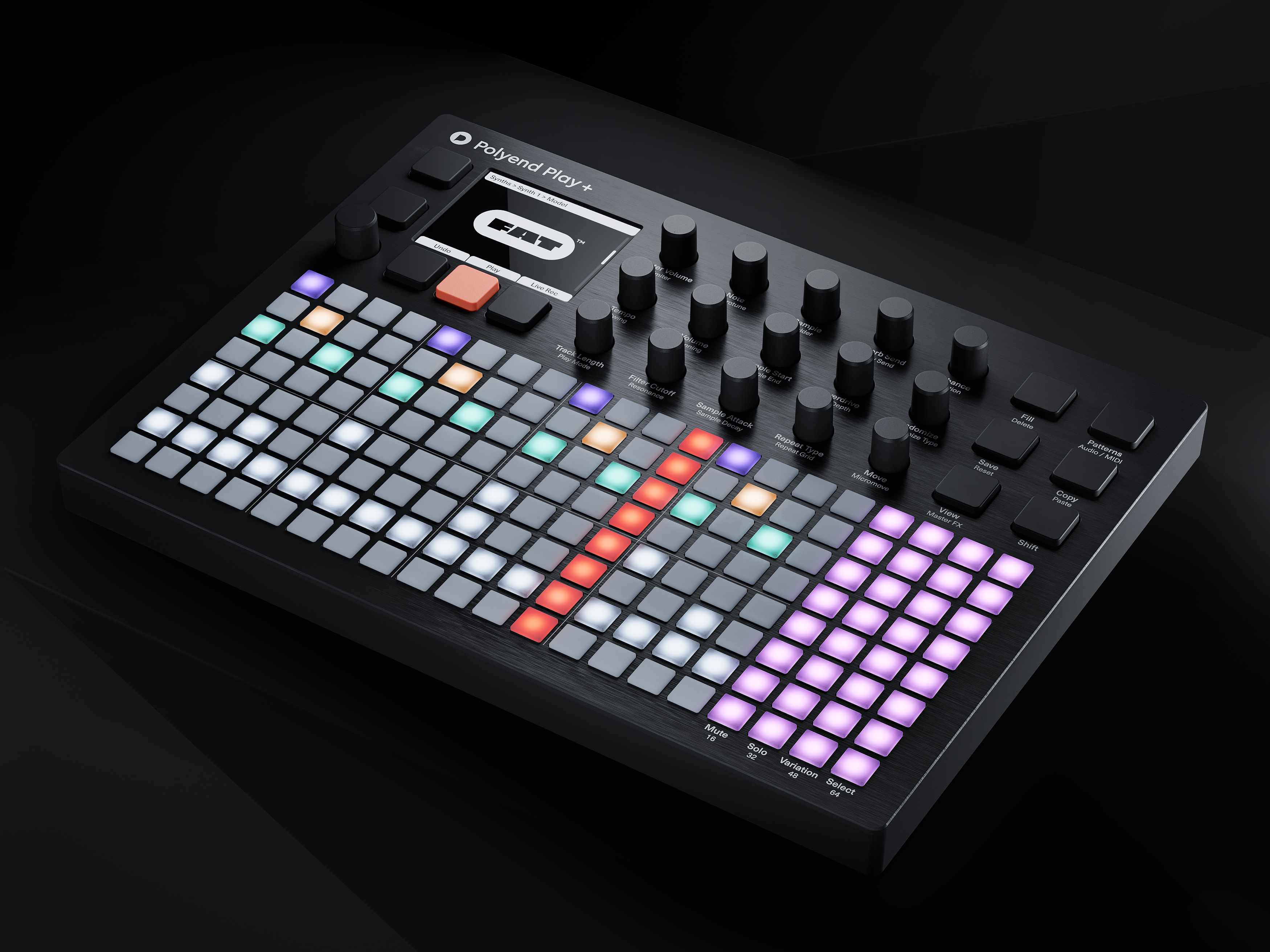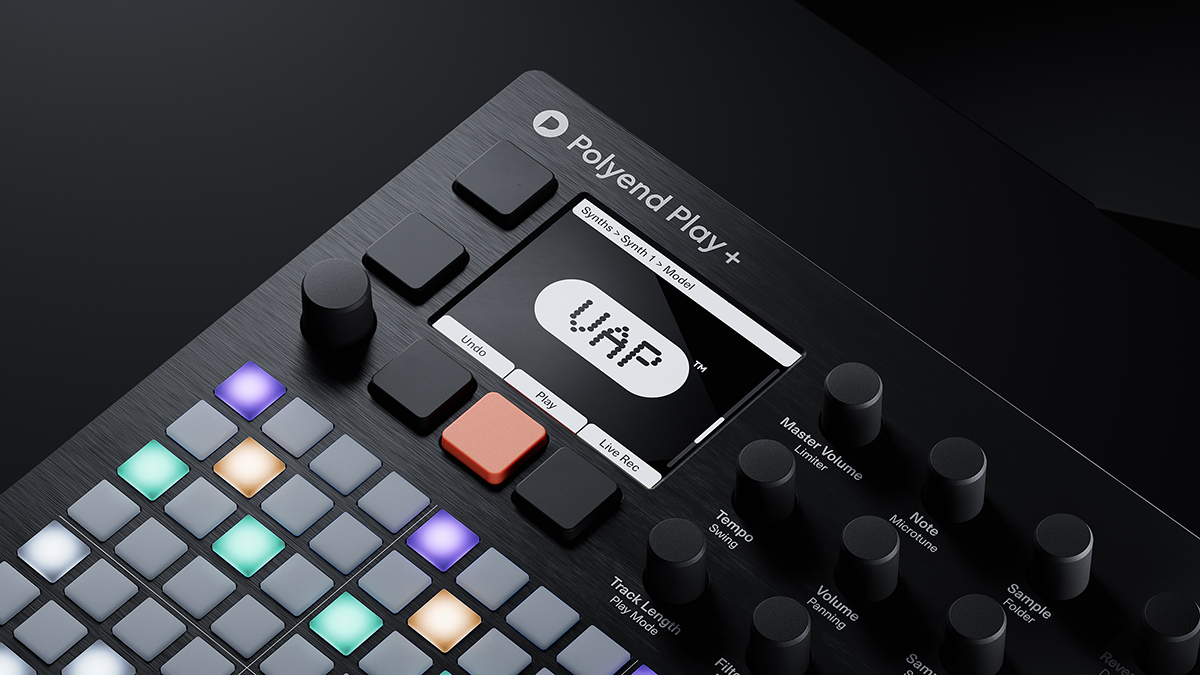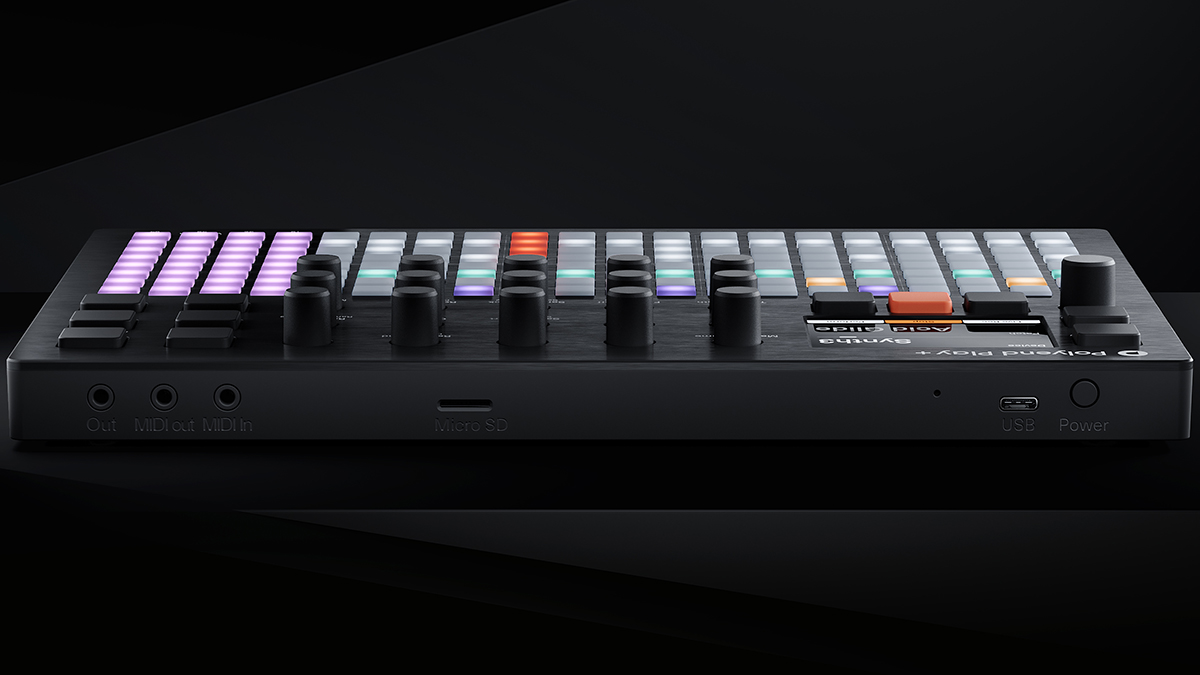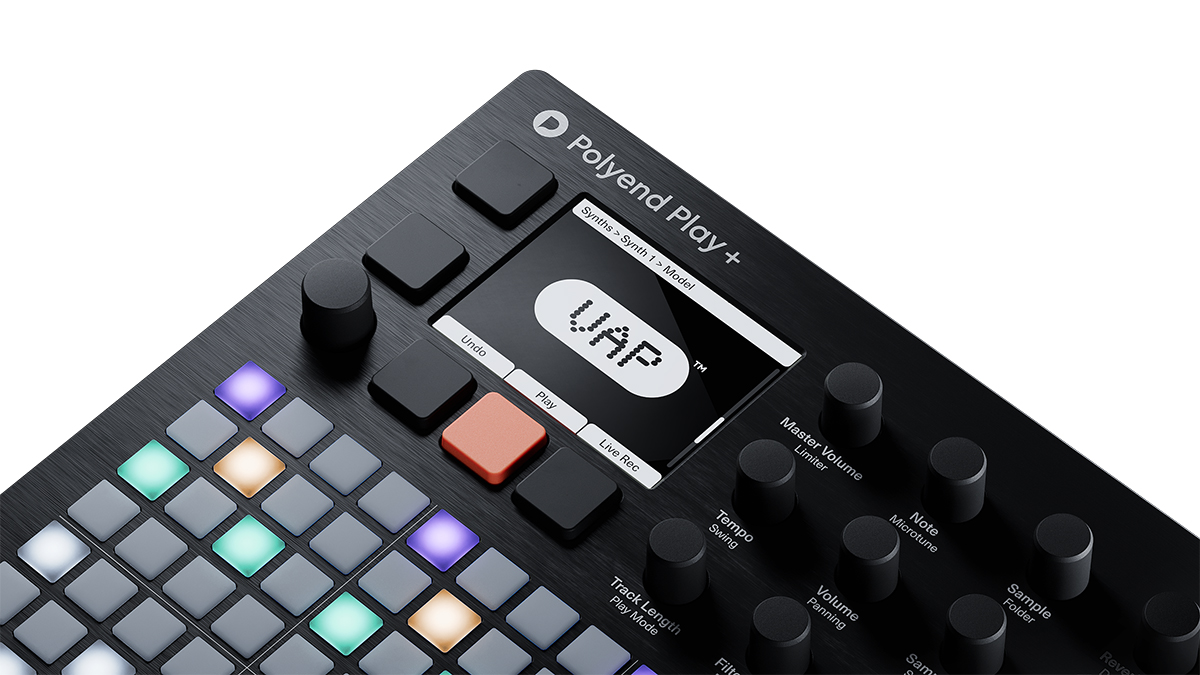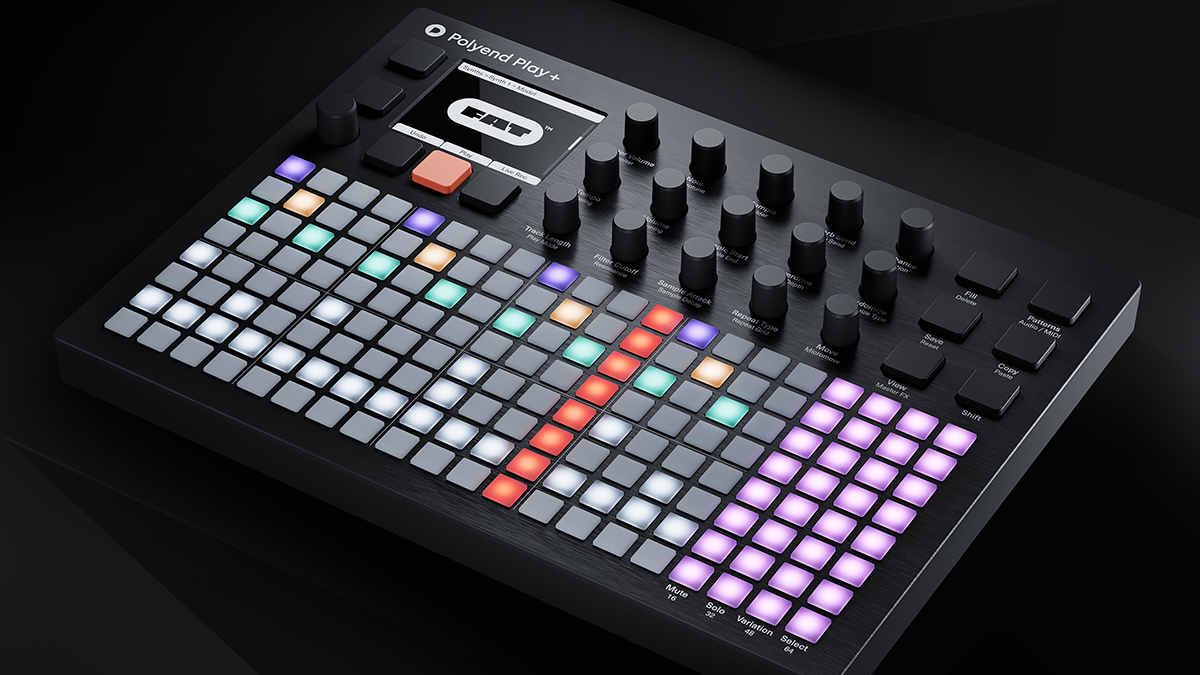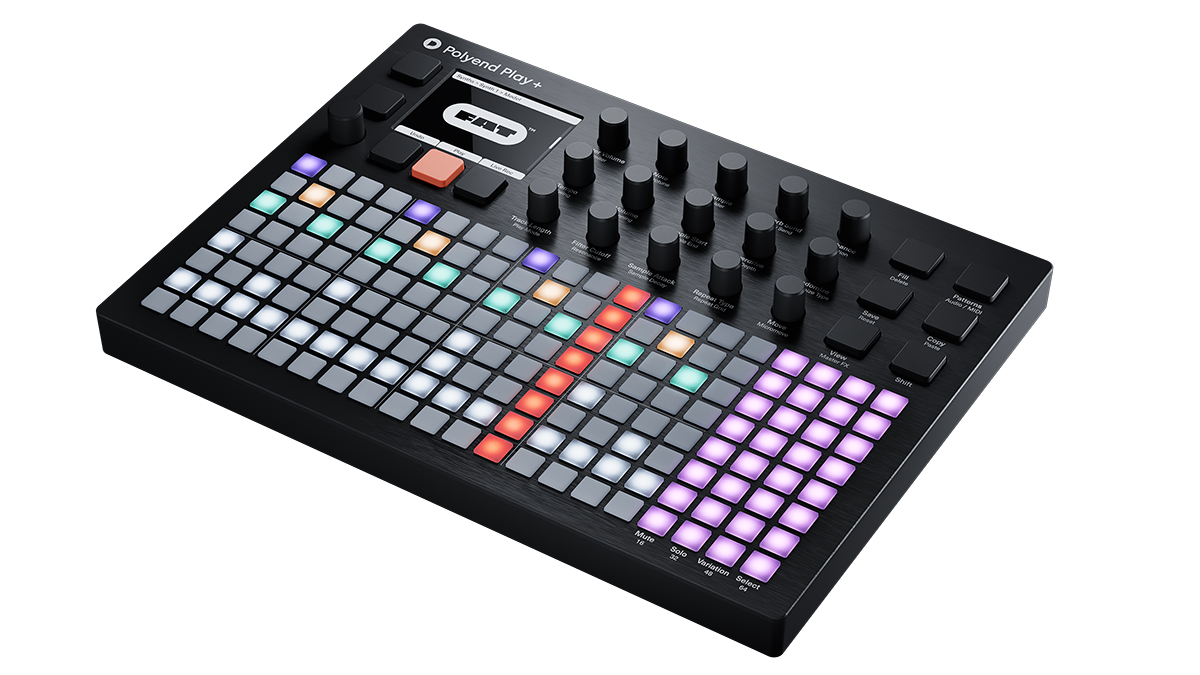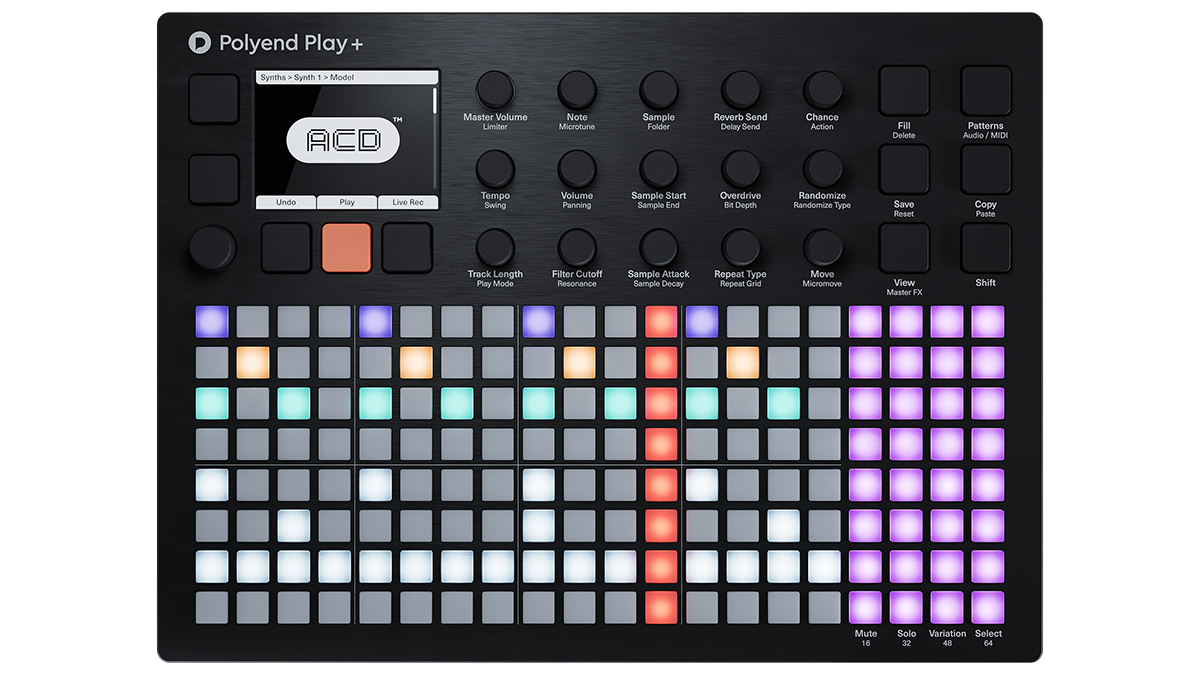Whereas Polyend’s original Play was a sample- and MIDI-based groovebox, the new Play+ model goes a significant step further by adding four built-in synth engines, giving you far more creative options.
The synths are powered by an upgraded processor, which has also enabled Polyend to add stereo sample playback and multitrack audio streaming over USB.
The list of synth engines kicks off with ACD, an emulation of a single-oscillator monophonic analogue instrument. FAT promises to deliver the “powerhouse” vintage warmth of classic analogue synths, while VAP is a virtual anlogue instrument with a dual-oscillator design and modulation matrix.
Finally, there’s the cheekily named WTFM, a 2-operator FM synth with wavetable-based oscillators and a 3x feedback system. That said, we’re told to expect more synth engines in future updates.
Polyend reckons that the switch from mono to stereo samples will take you on a “more nuanced and expansive sonic journey”, which makes sense, and Play+ comes with new stereo sample packs. These are in addition to the already expansive library of more than 5,000 samples.
The new multitrack USB audio support, meanwhile, means that up to 14 stereo audio tracks can be sent to your DAW separately, ready for processing in any way you like. This also gives you the opportunity to process individual tracks with external effects during a live set.
Despite these enhancements, Play+ is said to stay true to the spirit of its predecessor’s workflow, enabling you to sequence tracks on a 8x16 step grid. Parameters can be sequenced on a per-step basis, and there are multiple effects, play modes and randomisation options. There’s a new piano roll for building melodies, and scale filtering can force Play+ to input and output only notes that fit the selected scale.
Connectivity options include MIDI I/O, stereo line/headphone out and USB-C. A 16GB MicroSD card comes in the box.
Play+ can be ordered now from the Polyend website for $799/€799. Upgrades from Play cost $399/€399.
